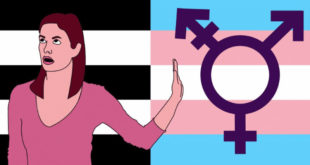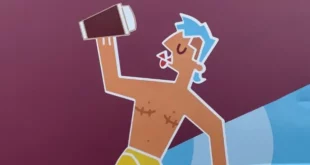Much sad
The Hindu caste system has existed for untold thousands of years. It is only when these Hindus got to America that white women were able to fix this problem that is so deeply rooted in their culture with the fix-all doctrine of equity and inclusion.
BBC:
The US states of Colorado and Michigan recently declared 14 April as Dr BR Ambedkar Equity Day. Days before that, Canada’s British Columbia province also declared April as Dalit History Month.
Ambedkar, the architect of India’s constitution, is the venerated leader of the Dalits (formerly untouchables), who suffered from their lowly position in the caste hierarchy. He was born on 14 April 1891.
India’s constitution and courts have long recognised lower castes and Dalits as historically disadvantaged groups and offered protections in the form of quotas and anti-discriminatory laws.
Now Dalit activists and academics, particularly in the US, are trying to bring in similar recognition in the West, where the Indian diaspora has often strived to be the “model minority” – aspiring, diligent immigrants who assimilate seamlessly into the country.
“Ambedkar once quoted, ‘If Hindus migrate to other regions on earth, Indian caste would become a world problem.’ That is precisely what is happening now in the United States,” Rama Krishna Bhupathi of the US-based civil rights group Ambedkar International Center told the BBC.
Dalit activists say that for decades, discrimination practised by upper-caste Indians – especially in universities and technology firms – didn’t get attention.
But over the past few years, many have been speaking out.
In a September 2020 episode of the NPR show Rough Translation, a tech employee using the alias of Sam Cornelius spoke about co-workers patting him on the back to figure out if he was wearing the white thread worn by men of the Brahmin caste.
“They will call you for a swim, you know? ‘Hey. Let’s go for a swim’ – because everybody takes their shirt off. And they all know who are wearing threads, who are not,” he said on the show.
Others also spoke of feeling afraid and uncomfortable as Indians asked each other their caste at university parties.
The work of activists from marginalised castes and a rise in online “safe” spaces have increased the visibility of this issue in recent years.
The Black Lives Matter protests, which intensified after the killings of George Floyd and Breonna Taylor, also had an effect, said Sonja Thomas, an assistant professor who fought for caste protections at Colby College in Maine.
South Asian Americans are now thinking through how anti-Blackness in their own communities might be informed by casteism, she said.
One major change in the past decade, Ms Thomas explained, is that many from the upper-castes are also grappling with their historical privilege.
“Though we are all well-versed in the stories of how our mothers and fathers came here with one suitcase and a handful of dollars in their pocket, we have little understanding of how generations of caste privilege in India helped pave the way for our parents, us and our children to do well in this country,” documentary filmmaker Kavita Pillay said in the Caste In America series funded by the Pulitzer Center.
Activists say a pivotal moment in the US was the state of California’s 2020 lawsuit against IT conglomerate Cisco and two of its dominant caste employees of Indian origin for harassment and discrimination against a Dalit co-worker.
“The case gave credibility to the efforts that were already being made in the background,” the Ambedkar Association of North America (AANA) told the BBC.
Soon after the Cisco case became public, a hotline set up by Dalit rights organisation Equality Labs received reports of caste-based harassment from more than 250 tech workers in Google, Facebook, Apple and several other companies in Silicon Valley.
The Cisco case received support from the workers’ union of Google’s parent company, Alphabet.
“It was the first time an American institution outside of our countries of origin recognised caste as a significant civil rights problem and one that required governmental litigation,” Thenmozhi Soundararajan, founder of Equality Labs, told the BBC.
In 2021, a separate federal lawsuit accused Hindu organisation Bochasanwasi Shri Akshar Purushottam Swaminarayan Sanstha (BAPS) of exploiting Dalit workers to build temples across various sites while paying them far less than the minimum wages.
The same year, the University of California, Davis, Colby College, Harvard University and the California Democratic Party added protections against caste discrimination in their policies.
A landmark moment came in January 2022 when California State University became the first and the largest university system in the country to add caste as a protected category in its policy.
I actually support this sort of thing, because right-wing Hindus are not that bad. You might be shocked at how hardcore they are in reacting to this stuff about “privilege.”
There are a lot of rich Hindus that are getting super pissed at this gay shit in the West, and they’re likely to play some kind of role in the backlash.
We’re in a seriously diverse hell. There is no reason not to use every tool at our disposal, and in my opinion, rich right-wing Hindus are the least of our problems when it comes to the diversity plague.
 Daily Stormer The Most Censored Publication in History
Daily Stormer The Most Censored Publication in History


